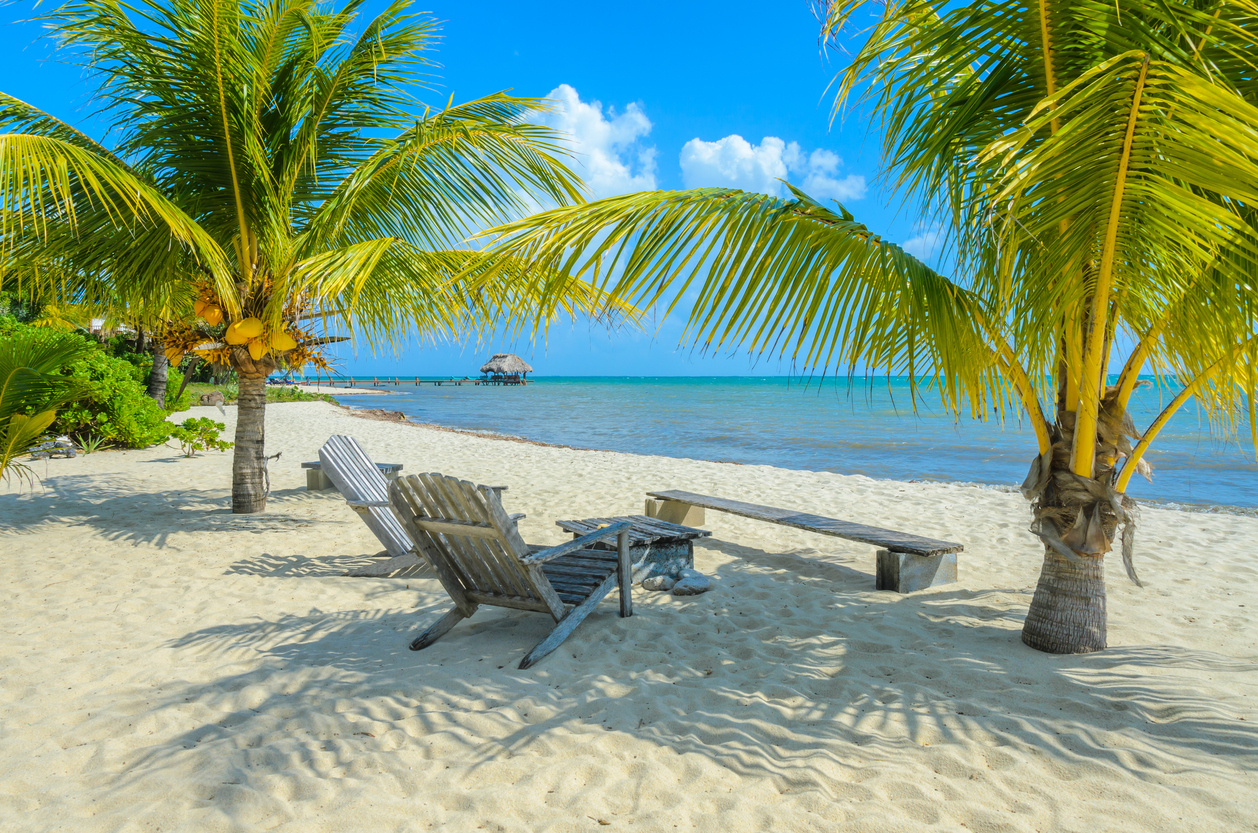Retire in Belize, and you’ll get more than just Caribbean beaches and rainforest adventures—you’ll get a simpler, sunnier way of life. With English as the official language and a surprisingly affordable cost of living, it’s no wonder U.S. expats are flocking to Belize for their retirement.
But is it really that easy? What about taxes, legal residency, and—let’s be honest—safety?
(Short answer: yes. Just choose your location wisely and avoid that one guy who thinks alligators make good pets.)
Let’s break down what it takes to retire in Belize—and why it might just be one of the smartest moves you’ll ever make.
📋 Key Updates for 2025
- QRP Age Reduced: The minimum age to apply for Belize’s Qualified Retirement Program (QRP) is now 40 (down from 45).
- Income Tax Exemption Raised: Belize increased the income tax exemption threshold to $29,000 annually starting in 2025.
- Expanded QRP Income Sources: Belize now accepts a wider range of income sources for the QRP, including savings and reverse mortgages.
Legal residency in Belize for U.S. retirees
If you’re planning to retire in Belize, you’ll need a legal path to stay long-term. While a tourist visa is a good starting point, most U.S. expats eventually apply for the Qualified Retirement Program (QRP)—a popular, low-hassle residency option built specifically for retirees.
Short-term: Tourist visa
U.S. citizens can enter Belize on a 30-day tourist visa, which offers short-term flexibility. Many expats use this option while exploring different areas before committing to residency.
- The tourist visa is issued upon arrival.
- It can be renewed monthly at local immigration offices.
- While it’s useful for short stays, it’s not a long-term solution.
Long-term: The Qualified Retirement Program (QRP)
The QRP, administered by the Belize Tourism Board, offers a more permanent solution for retirees with a steady income and a desire to live in Belize without going through the standard immigration process.
To qualify for the QRP program, you must:
- Be at least 40 years old
- Have a monthly income of $2,000 U.S. dollars (USD) or more from retirement sources like a pension, annuity, or Social Security
- Spend at least 30 consecutive days per year in Belize
- Submit an application form with required documentation
Required documents include:
- Valid passport
- Birth certificate
- Proof of income
- Recent police record
- Passport-sized photos
- Application fee payment
Benefits of the Belize Qualified Retirement Program
Foreigners with QRP status receive a resident card (note: this is not permanent residency) and access to several expat-friendly incentives:
- No taxes on foreign income, capital gains, or inheritance.
- Duty-free import of household goods, one vehicle, and even a boat or light aircraft.
- No requirement to purchase real estate—long-term renting is allowed.
- Option to include dependents (spouse and children under 18) in your application.
With a straightforward application process, a low cost of living, and English as the official language, Belize makes it refreshingly easy for U.S. retirees to settle in—laid-back lifestyle and Maya ruins included.
Taxes for U.S. citizens retiring in Belize
One of the biggest draws for those looking to retire in Belize is its favorable tax treatment—especially for qualified retired persons under the QRP program.
Belizean tax benefits for retirees
Belize offers generous tax exemptions that can make a noticeable difference in your retirement budget. If you’re living in Belize and earning income from outside the country, here’s the good news:
- No Belizean tax on foreign-sourced retirement income. (This includes pensions, Social Security benefits, and annuities)
- No capital gains tax.
- No inheritance tax.
- No tax on interest or dividends earned abroad.
- Duty exemptions on personal effects, household goods, and one vehicle for personal use under the QRP program.
💡 Pro Tip:
These policies make Belize one of the most tax-friendly options for U.S. retirees in Central America.
U.S. tax obligations still apply
Even if you’re soaking up the sun in Belize, the IRS hasn’t forgotten about you. As a U.S. citizen, you’re still required to:
- File a U.S. tax return every year.
- Report your worldwide income, including Social Security and investment income.
- File FBARs (Foreign Bank Account Reports) if your foreign accounts total more than $10,000.
That means living in Belize may feel carefree, but your U.S. tax filing must stay on track. The good news? With the right tax strategy, tools like the Foreign Earned Income Exclusion (FEIE) and Foreign Tax Credit can help reduce or eliminate double taxation.
Belize vs. other retirement destinations
Compared to other retirement spots in Central America or North America, Belize holds its own:
- No local tax on foreign income (unlike Mexico or Costa Rica)
- No required investment in real estate to qualify for retirement status
- English-speaking government and simplified tax exemption policies
For U.S. expats seeking a balance of affordability, comfort, and light-touch tax rules, Belize is hard to beat.
How much money do you need to retire in Belize?
The answer depends on your lifestyle, but many retirees find they can live quite comfortably on $2,000–$3,000 USD per month. Yes, really—$2,000 can go a long way when you’re soaking up the sun, sipping coconut water by the beach, and spending more time deciding which hammock to nap in than worrying about bills.
If you’re looking to retire in Belize under the Qualified Retirement Program (QRP), you’ll need to prove you have a steady income or pension, with a minimum of $2,000 USD per month. This income must be deposited into a local Belize bank account. If you already have a pension or reliable income, you’re good to go!
Belize uses the Belize dollar (BZD), but don’t worry—USD is widely accepted, so you won’t have to hassle with currency exchange every time you grab a coffee or stock up on groceries.
When it comes to budgeting, here are the essentials you’ll need to consider:
- Housing: Rent can range from affordable apartments in places like Cayo to pricier beachfront properties in Ambergris Caye or Placencia.
- Utilities: Expect to pay for electricity, water, and internet. Costs can vary depending on your usage (and how much you like to crank up the AC).
- Food: Local markets are your best friend, and eating like a local will save you a lot while keeping your taste buds happy.
- Medical care: Healthcare is affordable, though some expats opt to travel for more specialized care if needed.
- Occasional travel: Whether you’re exploring the mainland or hopping between islands, it’s always nice to have a little extra for travel adventures.
Whether it’s housing, food, or leisure, your retirement money stretches farther than you might expect—giving you more to enjoy the beach, the views, and maybe a few more coconuts.
💡 Pro Tip:
One of the biggest savings in Belize comes from no import duties under the QRP and the generally low day-to-day expenses.
Healthcare in Belize: What retirees should know
When it comes to healthcare in Belize, there’s a mix of public and private options—but most expats lean toward private care. While the public system offers basic services, private doctors, hospitals, and specialists are often preferred for quicker, more reliable treatment. You’ll find the best private healthcare options in Belize City and Ambergris Caye.
For more complex or specialized treatments, some retirees opt for international health insurance or make the short trip to Mexico or the U.S. for certain medical procedures. If you’re considering purchasing land or settling in Belize long-term, be sure to factor healthcare into your planning—whether that means budgeting for private care or securing travel insurance for emergencies.
💡 Pro Tip:
In general, healthcare in Belize is affordable compared to the U.S., but it's always a good idea to do your research and plan accordingly.
Is Belize the right retirement destination for you?
Belize offers plenty of perks for retirees, but is it the right fit for you? Let’s break it down:
Belize might be right for you if…
- You want to live in an English-speaking country with a laid-back Caribbean vibe.
- You’re looking to retire tax-free on your foreign retirement income.
- You prefer a simple visa application process, making retirement a breeze.
- Adventure is on your to-do list—think jungles, beaches, snorkeling, and the barrier reef.
You might want to think twice if…
- You want advanced healthcare on your doorstep—many expats travel for specialized care.
- You’re concerned about access to certain amenities that are more common in bigger cities.
All in all, Belize stands out as one of the best Central American countries for retirement, especially if you’re looking for affordability and a relaxed lifestyle—with just a dash of adventure.
Ready to retire in Belize?
Belize offers a tax-friendly, affordable retirement option with stunning beaches, easy residency, and no taxes on foreign income. Whether you’re drawn to the QRP or simply the laid-back lifestyle, it’s an ideal choice for U.S. retirees.
As you plan your move, don’t forget about your U.S. tax obligations. Bright!Tax specializes in expat tax filings, helping you navigate the complexities of retirement abroad. Get in touch to make sure your tax strategy aligns with your new life in Belize, so you can focus on what really matters—enjoying your retirement!
Frequently Asked Questions
-
Do I need to pay U.S. taxes if I retire in Belize?
Yes, U.S. citizens and green card holders are required to file U.S. tax returns every year, even if you live abroad. However, Belize doesn’t tax foreign income, including pensions, Social Security, and annuities, so you won’t pay Belizean taxes on your retirement income.
-
What are the requirements to retire in Belize under the Qualified Retirement Program (QRP)?
To qualify for the QRP, you need to be at least 40 years old and show proof of a steady monthly income of $2,000 USD or more. This income can come from a pension, Social Security, or annuities, and must be deposited directly into a Belizean bank account.
-
Can I buy property in Belize as a U.S. retiree?
Yes! As a QRP holder, you can purchase property in Belize with ease, and you may also receive duty exemptions on personal effects and vehicles.
-
How much money do I need to retire comfortably in Belize?
Most retirees live comfortably in Belize on $2,000–$3,000 USD per month. Your monthly expenses will vary depending on your lifestyle, but this is a reasonable estimate for housing, utilities, food, and healthcare.
-
Is healthcare affordable in Belize for retirees?
Yes, healthcare in Belize is affordable compared to the U.S. Many expats opt for private healthcare, with services available in Belize City and Ambergris Caye. Some retirees also use international health insurance or travel to nearby countries for specialized care.
-
Can I still keep my U.S. bank account when I retire in Belize?
Yes, many U.S. expats keep their U.S. bank accounts while living in Belize. However, you’ll need a local Belize bank account for the QRP requirements, and you can easily transfer money between the two.
-
How long can I stay in Belize as a U.S. citizen?
U.S. citizens can stay in Belize for 30 days on a tourist visa, which can be renewed monthly. For long-term stays, you’ll need to apply for the QRP to establish residency.

 Connect on LinkedIn
Connect on LinkedIn

